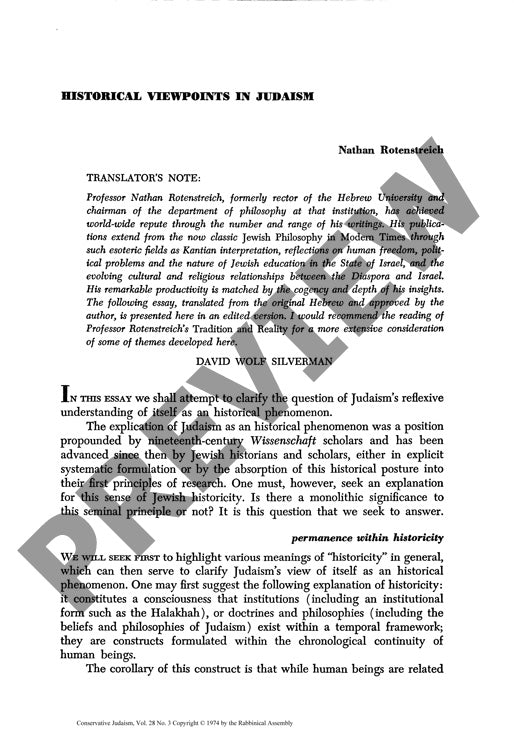Historical Viewpoints in Judaism
Couldn't load pickup availability
Judaism's understanding of its own history reveals a profound tension between two competing interpretations of historicity - one emphasizing permanent truth transmitted across generations, the other viewing historical change as legitimizing ongoing evolution. Building upon nineteenth-century Wissenschaft scholarship, Rotenstreich's philosophical analysis distinguishes between historicity as temporal continuity versus authorization for progressive change. Traditional Judaism prioritizes unbroken transmission of Halakhah and doctrine, positioning tradition as the vital link between past revelation and present practice. In contrast, modern historical consciousness interprets past changes as precedent for future innovations, potentially undermining traditional authority. This fundamental ambiguity shapes contemporary Jewish identity, manifesting in tensions between traditional and subjective approaches to Jewish belonging. The analysis extends to parallel dynamics between religious and secular Jews, and between Israeli and Diaspora communities. Neither interpretation of historicity ultimately provides definitive guidance for Jewish continuity. Rather, the fragmentation between traditional and modern Jewish consciousness represents an ongoing challenge requiring mutual understanding beyond mere tolerance. These competing historical viewpoints constitute the central problematic of contemporary Jewish existence.

More Information
-
Physical Description
-
Publication Information
Published 1974
ISBN
-
Publication Credits
Nathan Rotenstreich

